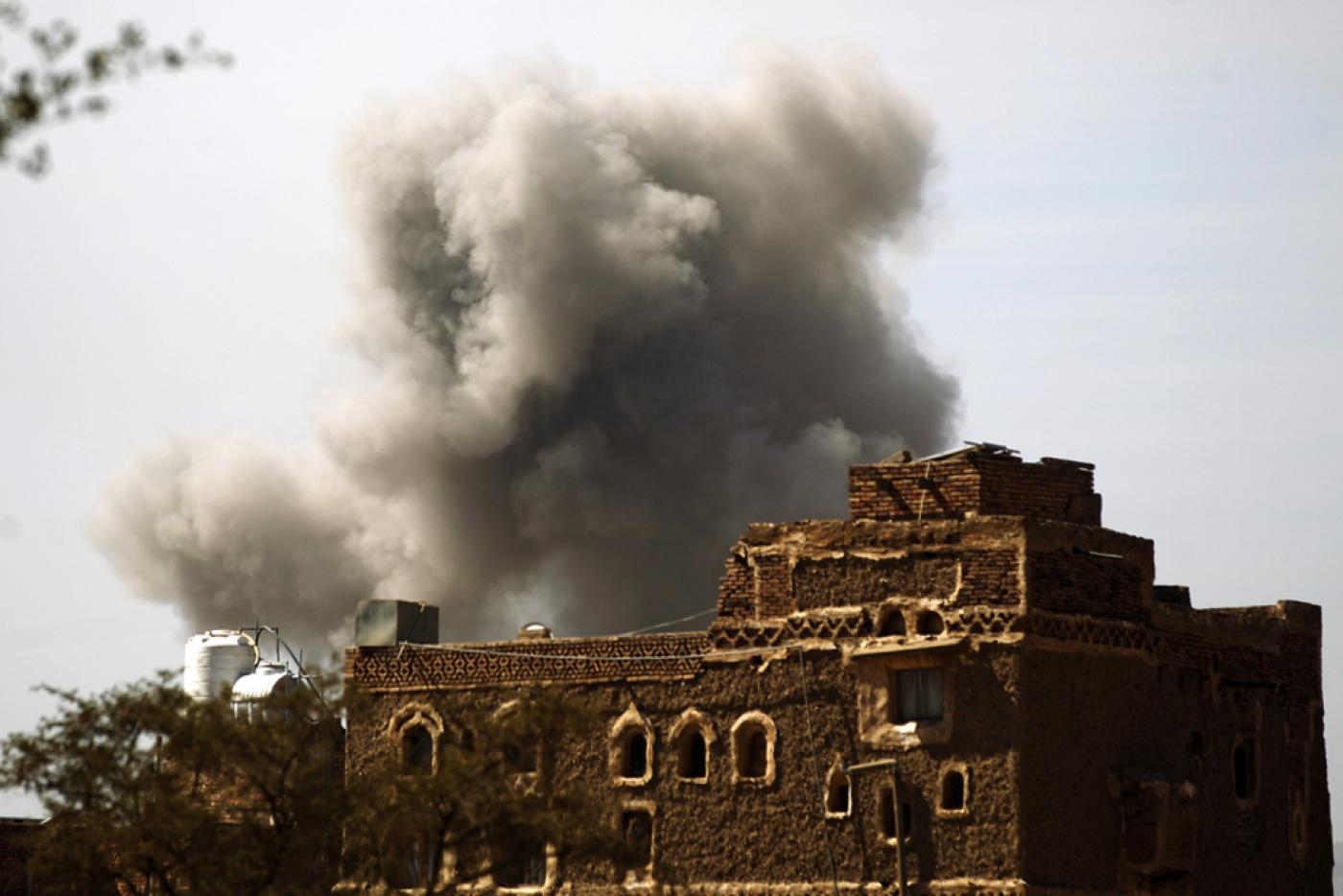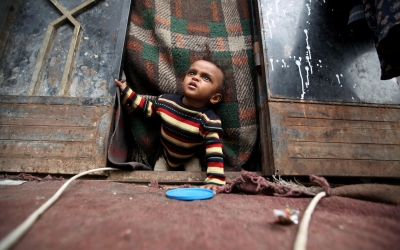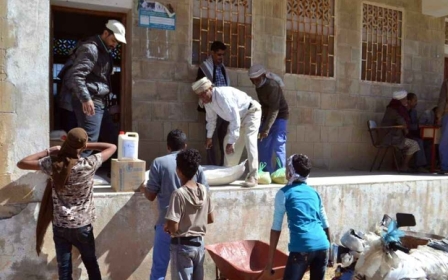US senator begins process to block Trump's $8bn arms sale to Saudi Arabia

A United States senator has started the legislative process to block President Donald Trump's move to sell more than $8bn in military equipment to Saudi Arabia over its destructive role in Yemen.
Bob Menendez, a Democrat from the state of New Jersey, called on Tuesday for the Senate Foreign Relations Committee to pass a bipartisan resolution that officially puts Congress on record as disapproving of the White House's decision.
On the Senate floor, Menendez called for the committee to discharge the resolution and requested "that the Senate proceed to its immediate consideration".
"This resolution ... would disapprove the administration's proposed sale of precision-guided munitions to the Kingdom of Saudi Arabia, weapons they have used in the killing of untold numbers of innocent civilians in their ongoing campaign in Yemen," he said.
On 24 May, the Trump administration declared an emergency to force through more than $8bn in arms sales to Saudi Arabia and the United Arab Emirates, despite growing concerns about the Saudi-led coalition's war in Yemen and the humanitarian crisis in the war-torn country.
New MEE newsletter: Jerusalem Dispatch
Sign up to get the latest insights and analysis on Israel-Palestine, alongside Turkey Unpacked and other MEE newsletters
Trump has placed an emphasis on maintaining close ties to Saudi Arabia, pledging to sell billions of dollars of weapons to the Gulf country despite opposition from rights groups and US lawmakers, among others.
Menendez's resolution is co-sponsored by Senator Lindsey Graham, a Republican who has swung back-and-forth between criticising and defending Trump's Middle East policy. It aims to prohibit a "manufacturing license, technical assistance license, or export license" to Riyadh.
The motion, introduced on 5 June, has not yet passed through the Senate Foreign Relations Committee. If it does, the bill will undergo a full Senate vote.
"What's happening in Yemen is a humanitarian disaster that has been exacerbated by the very weapons we have been giving the Saudis in order to fight this conflict in Yemen and has created untold humanitarian disaster," Menendez said on Tuesday.
Congress has previously tried to limit the White House's ability to support Saudi Arabia's war in Yemen.
The legislative body first proposed a bill to block US assistance to Saudi-led forces last year, invoking for the first time the 1973 War Powers Act, which reaffirms that Congress, not the executive branch, holds the ability to declare war.
While the legislation passed through both chambers - the House of Representatives and the Senate - Trump vetoed the bill and the Senate failed to override it.
Humanitarian crisis
Saudi Arabia leads a Western-backed military coalition that intervened in Yemen in 2015 to restore the government of President Abd Rabbuh Mansour Hadi, who was kicked out of power in Sanaa by Yemen's Houthi rebels a year earlier.
The humanitarian crisis in Yemen remains the worst in the world.
Nearly four years of conflict and severe economic decline have driven the country to the brink of famine and exacerbated an ongoing humanitarian crisis.
An estimated 80 percent of the population - about 24 million people - require some form of humanitarian or protection assistance, including 14.3 million who are in acute need, according to the United Nations.
The UN said in February that at least 7,000 civilians had been killed and more than 11,000 injured in the fighting since March 2015, with 65 percent of the deaths attributed to Saudi-led coalition air strikes.
However, a UN-commissioned study by the University of Denver has found that the death toll is much higher.
About 131,000 Yemenis will have died from the conflict and its side effects between the beginning in 2015 and the end of 2019, according to the 68-page study called Assessing the Impact of War on Development in Yemen.
Middle East Eye delivers independent and unrivalled coverage and analysis of the Middle East, North Africa and beyond. To learn more about republishing this content and the associated fees, please fill out this form. More about MEE can be found here.





